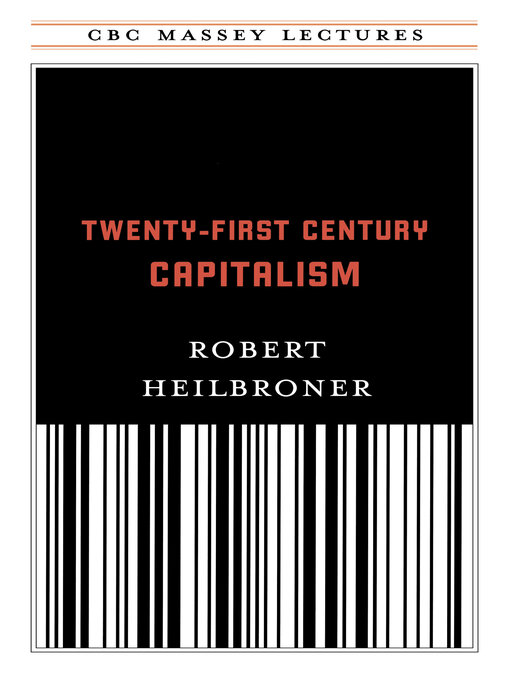A New York Times Notable Book What forms will capitalism take in the twenty-first century? To answer this question, noted economist and social philosopher Robert Heilbroner looks beyond economic theory to the social and political problems of modern economic society. In this sweeping examination of the past, present, and possible future, Heilbroner considers capitalism both as an economic system and a political order. He argues persuasively that, even in an increasingly globalized economy, government remains crucial to a healthy private sector, due to the limited ability of markets to order themselves, let alone make contributions to teh common good such as tackling environmental probelms or providing sufficient educational programs. Heilbroner concludes this penetrating technique by speculating on whether some more participatory forms of capitalism might emerge this century.
- All eBooks
- Express Collection
- Non-fiction
- New kids additions
- New teen additions
- All-Access Comics
- See all
- All Audiobooks
- Express Collection
- New kids additions
- New teen additions
- Most popular
- Audiobooks for the Whole Family
- See all
- OverDrive Magazines
- Celebrity
- News & Politics
- Health & Fitness
- Cooking & Food
- Sports
- Lifestyle
- Tech & Gaming
- Family & Parenting
- Travel & Outdoors
- Fashion
- Gardening Magazines
- See all

